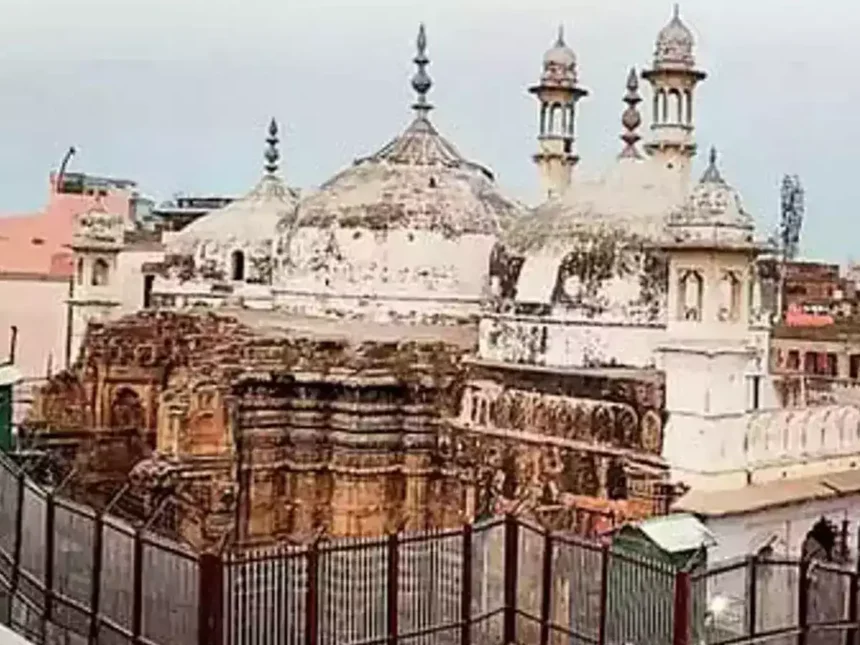In a significant development surrounding the Gyanvapi mosque in Varanasi, the Archaeological Survey of India (ASI) has submitted its “scientific survey” report to the district judge’s court in Uttar Pradesh. The mosque, dating back to the late 17th century, has been a focal point of contention, with claims and counterclaims regarding its origins.
The report, submitted as a sealed document on a Monday afternoon, has raised questions about its accessibility and transparency. The uncertainty surrounding whether the report will be made public or shared with either the Hindu petitioners or the Muslim side adds a layer of complexity to an already delicate situation.
The court, which ordered the survey of the mosque premises (excluding the ‘wazukhana’ as sealed by the Supreme Court), seeks to determine if the mosque was constructed atop a pre-existing Hindu temple. This echoes longstanding disputes over religious sites in India, adding a historical dimension to the legal and cultural discourse.
Notably, the Muslim side has expressed opposition to a public disclosure of the report, while the Hindu petitioners have objected to its submission in a sealed format. These contrasting stances underscore the sensitivity of the matter and highlight the divergent expectations of the involved parties.
About Gyanvapi Mosque Survey:
As the next hearing date looms on Thursday, the fate of the report’s public disclosure remains uncertain. The deliberations in court will likely play a pivotal role in determining whether the findings will be shared openly, providing clarity on the historical roots of the Gyanvapi mosque, or if they will be confined to the sealed chambers of the legal process.
The Gyanvapi mosque case is emblematic of the broader challenges India faces in reconciling its rich tapestry of religious diversity with historical claims. The court’s decision on the fate of the survey report will undoubtedly have far-reaching implications, influencing perceptions of history, identity, and coexistence.
In a country where historical narratives are deeply intertwined with cultural and religious identities, the Gyanvapi mosque survey serves as a microcosm of the larger discourse on India’s historical heritage. As the legal proceedings unfold, they will shed light not only on the specific case at hand but also on the broader issues of historical interpretation, communal harmony, and the delicate balance between faiths in the Indian subcontinent.






